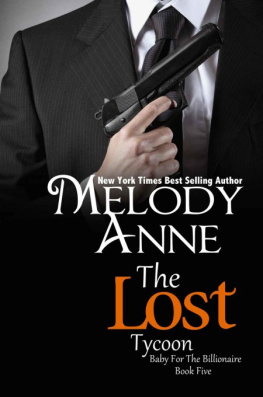ANNE C. E. ALLINSON
AUTHOR WITH FRANCIS G. ALLINSON OF "GREEK LANDS AND LETTERS"
Roman Eagles
New York
THE MACMILLAN COMPANY
1922
All rights reserved
PRINTED IN THE UNITED STATES OF AMERICA
COPYRIGHT, 1909, 1910, 1913,
By THE ATLANTIC MONTHLY COMPANY.
COPYRIGHT, 1913,
By THE MACMILLAN COMPANY.
Set up and electrotyped. Published September, 1913.
Three of the papers in this volume have already appeared in The Atlantic Monthly: "A Poet's Toll," "The Phrase-Maker," and "A Roman Citizen." The author is indebted to the Editors for permission to republish them. The illustration on the title page is reproduced from the poster of the Roman Exposition of 1911, drawn by Duilio Cambeliotti, printed by Dr. E. Chappuis.
PATRI MEO
LUCILIO A. EMERY
JUSTITIAE DISCIPULO, LEGIS MAGISTRO,
LITTERARUM HUMANARUM AMICO
PREFACE
The main purpose of these Roman sketches is to show that the men and women of ancient Rome were like ourselves.
"Born into life!'tis we,
And not the world, are new;
Our cry for bliss, our plea,
Others have urged it too
Our wants have all been felt, our errors made before."
It is only when we perceive in "classical antiquity" a human nature similar to our own in its mingling of weakness and strength, vice and virtue, sorrow and joy, defeats and victories that we shall find in its noblest literature an intimate rather than a formal inspiration, and in its history either comfort or warning.
A secondary purpose is to suggest Roman conditions as they may have affected or appeared to men of letters in successive epochs, from the last years of the Republic to the Antonine period. Three of the six sketches are concerned with the long and brilliant "Age of Augustus." One is laid in the years immediately preceding the death of Julius Caesar, and one in the time of Trajan and Pliny. The last sketch deals with the period when Hadrian attempted a renaissance of Greek art in Athens and creative Roman literature had come to an end. Its renaissance was to be Italian in a new world.
In all the sketches the essential facts are drawn directly from the writings of the men who appear in them. These facts have been merely cast into an imaginative form which, it is hoped, may help rather to reveal than cloak their significance for those who believe that the roads from Rome lead into the highway of human life.
In choosing between ancient and modern proper names I have thought it best in each case to decide which would give the keener impression of verisimilitude. Consistency has, therefore, been abandoned. Horace, Virgil and Ovid exist side by side with such original Latin names as Julius Paulus. While Como has been preferred to Comum, the "Larian Lake" has been retained. Perugia (instead of Perusia) and Assisi (instead of Assisium) have been used in one sketch and Laurentum, Tusculum and Tibur in another. The modern name that least suggests its original is that of the river Adige. The Latin Atesia would destroy the reader's sense of familiarity with Verona.
My thanks are due to Professor M. S. Slaughter, of the University of Wisconsin, who has had the great kindness to read this book in manuscript. My husband, Francis G. Allinson, has assisted me at every turn in its preparation. With one exception, acknowledged in its place, all the translations are his.
A. C. E. A.
TABLE OF CONTENTS
ROADS FROM ROME
THE ESTRANGER
I
In the effort to dull the edge of his mental anguish by physical exhaustion Catullus had walked far out from the town, through vineyards and fruit-orchards displaying their autumnal stores and clamorous with eager companies of pickers and vintagers. On coming back to the eastern gate he found himself reluctant to pass from the heedless activities of the fields to the bustle of the town streets and the formal observances of his father's house. Seeking a quiet interlude, he turned northward and climbed the hill which rose high above the tumultuous Adige. The shadows of the September afternoon had begun to lengthen when he reached the top and threw himself upon the ground near a green ash tree.
The bodily exercise had at least done him this service, that the formless misery of the past weeks, the monstrous, wordless sense of desolation, now resolved itself into a grief for which inner words, however comfortless, sprang into being. Below him Verona, proud sentinel between the North and Rome, offered herself to the embrace of the wild, tawny river, as if seeking to retard its ominous journey from Rhaetia's barbarous mountains to Italy's sea by Venice. Far to the northeast ghostly Alpine peaks awaited their coronal of sunset rose. Southward stretched the plain of Lombardy. Within easy reach of his eye shimmered the lagoon that lay about Mantua. The hour veiled hills and plain in a luminous blue from which the sun's radiance was excluded. Through the thick leaves of the ash tree soughed the evening wind, giving a voice to the dying day. In its moan Catullus seemed to find his own words: "He is dead, he is dead." His brother was dead. This fact became at last clear in his consciousness and he began to take it up and handle it.
The news had come two weeks ago, just as he was on the point of flying from Rome and the autumn fevers to the gaieties of Naples and Bai. That was an easy escape for a youth whose only taskmasters were the Muses and who worked or played at the behest of his own mood. But his brother, Valerius, had obeyed the will of Rome, serving her, according to her need, at all seasons and in all places. Stationed this year in Asia Minor he had fallen a victim to one of the disastrous eastern fevers. And now Troy held his ashes, and never again would he offer thanks to Jupiter Capitolinus for a safe return to Rome.
As soon as the letter from Valerius's comrade reached him, Catullus had started for Verona. For nearly ten years he had spoken of himself as living in Rome, his house and his work, his friendships and his love knitting him closely, he had supposed, into the city's life. But in this naked moment she had shown him her alien and indifferent face and he knew that he must go home or die. It was not until he saw his father's stricken eyes that he realised that, for once, impulse had led him into the path of filial duty. In the days that followed, however, except by mere presence, neither mourner could help the other. His father's inner life had always been inaccessible to Catullus and now in a common need it seemed more than ever impossible to penetrate beyond the outposts of his noble stoicism. With Catullus, on the other hand, a moved or troubled mind could usually find an outlet in swift, hot words, and, in the unnatural restraint put upon him by his father's speechlessness, his despair, like a splinter of steel, had only encysted itself more deeply. To-day he welcomed the relief of being articulate.
The tie between his brother and himself was formed on the day of his own birth, when the two year old Valeriushow often their old nurse had told the story!had been led in to see him, his little feet stumbling over each other in happy and unjealous haste. Through the years of tutelage they had maintained an offensive and defensive alliance against father, nurses and teachers; and their playmates, even including Clius, who was admitted into a happy triumvirate, knew that no intimacy could exact concessions from their fraternal loyalty. Their days were spent in the same tasks and the same play, and the nights, isolating them from the rest of their little world, nurtured confidence and candour. Memories began to gather and to torture him: smiling memories of childish nights in connecting bedrooms, when, left by their nurse to sleep, each boy would slip down into the middle of his bed, just catching sight of the other through the open door in the dim glow of the nightlamp, and defy Morpheus with lively tongue; poignant memories of youthful nights, when elaborate apartments and separate servants had not checked the emergence into wholesome speech of vague ambitions, lusty hopes and shy emotions. It was in one of these nights that Valerius had first hit upon his favourite nickname for his brother. Pretty Aufilena had broken a promise and Catullus had vehemently maintained that she was less honest than a loose woman who kept her part of a bargain. It was surprising that a conversation so trifling should recur in this hour, but he could see again before him his brother's smiling face and hear him saying: "My Diogenes, never let your lantern go out. It will light your own feet even if you never find a truthful woman."











